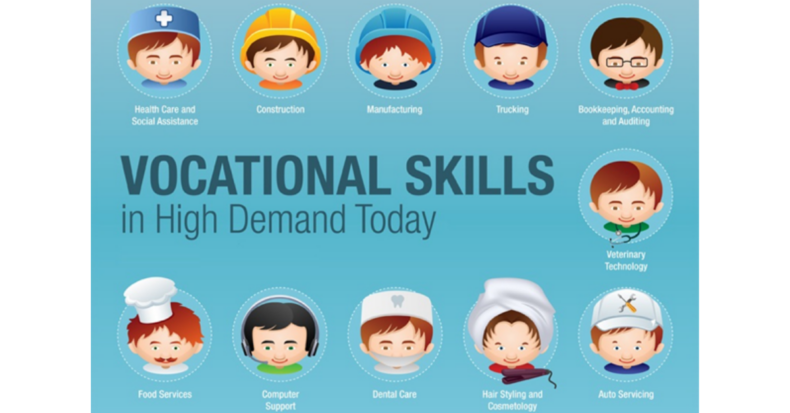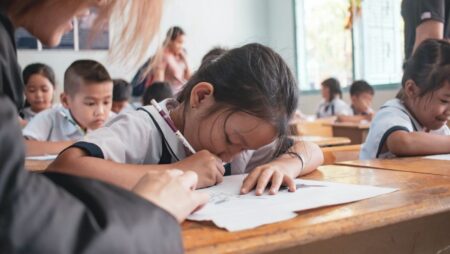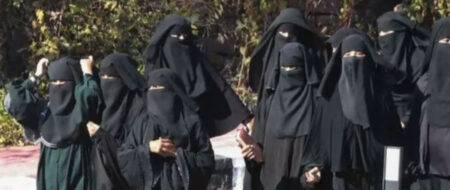Vocation and career are used interchangeably. Vocational education might be categorized as teaching procedural knowledge.
Vocational studies may be compared with declaratory knowledge, as used in education in a usually broader scientific field, understanding theory and abstract conceptual understanding, characteristic of tertiary education.
Vocation and Career
Vocational training can be at the secondary or post-secondary level and can interact with the apprenticeship scheme.
Increasingly, vocational education can be distinguished by recognizing pre-existing knowledge and limited academic credit concerning tertiary education, e.g., at a university. However, it is rarely regarded in its way to falling under the conventional definition of higher schooling.
Through the end of the twentieth century, vocational education focused on specific trades such as, for example, an automobile mechanic or welder. It was therefore associated with the activities of lower social classes.
Consequently, it attracted a level of stigma. Vocational education is related to the old apprenticeship system of learning.
However, as the labour market becomes more specialized and economies demand higher skill levels, administrations and businesses are progressively investing in the future of vocational education through publicly and open funded training organizations and sponsored apprenticeship or traineeship initiatives for companies.
At the post-secondary level, vocational education is classically offered by an institute of technology or a local community college.
Vocational lessons as part of the school curriculum
Schools in India usually offer vocational lessons as part of their regular curriculum. They allow students to decide a few skill-based subjects from a wide variety of options in addition to the typical mandatory issues.
The Central Board of Secondary Education starts vocational subjects from the upper primary level to give students the essential orientation to explore diverse professional options available at the secondary and senior secondary stages.
The Central Board of Secondary Education provides the elasticity to choose from the following kinds of vocational courses besides regular school education:
- Business and commerce courses (Secretaryship, stenography and computer application, accountancy and auditing, marketing and sales, banking, retail, financial market management and business administration).
- Engineering and technology courses (electrical technology, automobile technology, civil engineering, air conditioning and refrigeration technology, electronics technology, geospatial technology, foundry, and IT application)
- Health and paramedical courses (ophthalmic practices, medical laboratory practices, auxiliary treatment and midwifery, X-ray technician course, healthcare sciences, health and beauty studies and medical diagnostics)
- Fashion and textile courses (fashion design and clothing construction and textile design, dyeing and printing).
- Agricultural practices (poultry farming, horticulture, and dairying)
- Hospitality and tourism courses (food service, catering, hotel management, bakery and confectionary and travel and tourism management)
Other studies are transportation systems, life cover and library managing.
Likewise, the Indian Certificate of Secondary Education (ICSE) offers the following choices of vocational subjects:
- Mechanical, civil and telecommunication engineering technician courses.
- Offset printing and graphic designing technician courses.
- Air conditioning and refrigeration.
- Hospitality management.
- Crèche and pre-primary school management.
- Interior and exterior design.
- Computer theory and system analyst courses.
- Business studies.
- Physical education.
- Office assistant courses.
Vocational courses by state governments
Many state governments offer vocational programs outside the formal education system at the local level. For example, the Society for Employment Promotion and Training in Twin Cities (SETWIN) provides skill-based training for educated unemployed youth in Hyderabad and Secunderabad in Telangana.
It has over 70 centres (own and franchised) that impart training in over 100 courses, including the following:
- Technical courses (Solar technician, CCTV installation and gem cutting and polishing).
- Computer courses ( MS-OFFICE, multimedia, AUTO CAD, computer hardware and graphic designing).
- Management courses (Diploma and PG Diploma courses in food production, tourism and hotel management).
- Women-oriented courses (Garment making, herbal beauty care and dress designing)
- Educational courses (Spoken English, pre-primary teacher training and drawing teacher training).
- Media courses (Reporter, anchor, editor, photographer and floor manager).
Apart from the above, you can also undergo vocational training through apprenticeship, on-the-job training, and distance learning programs.













